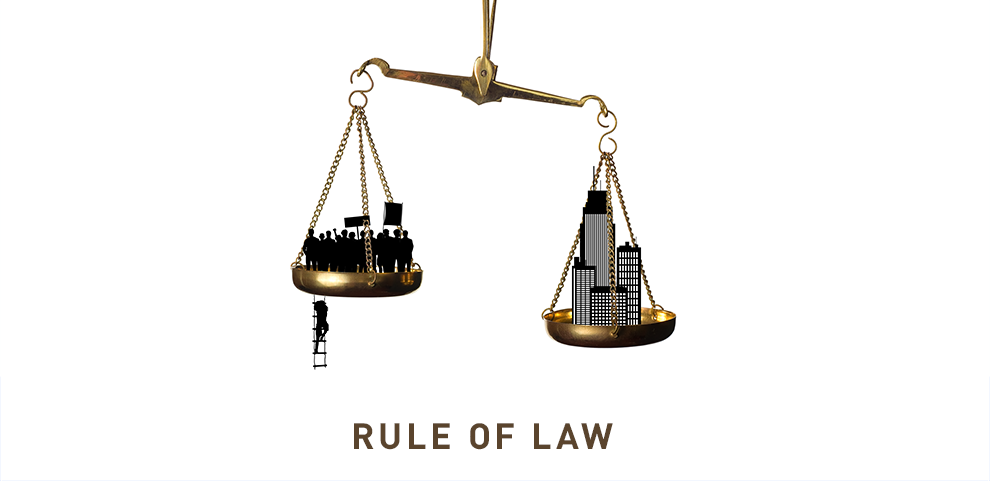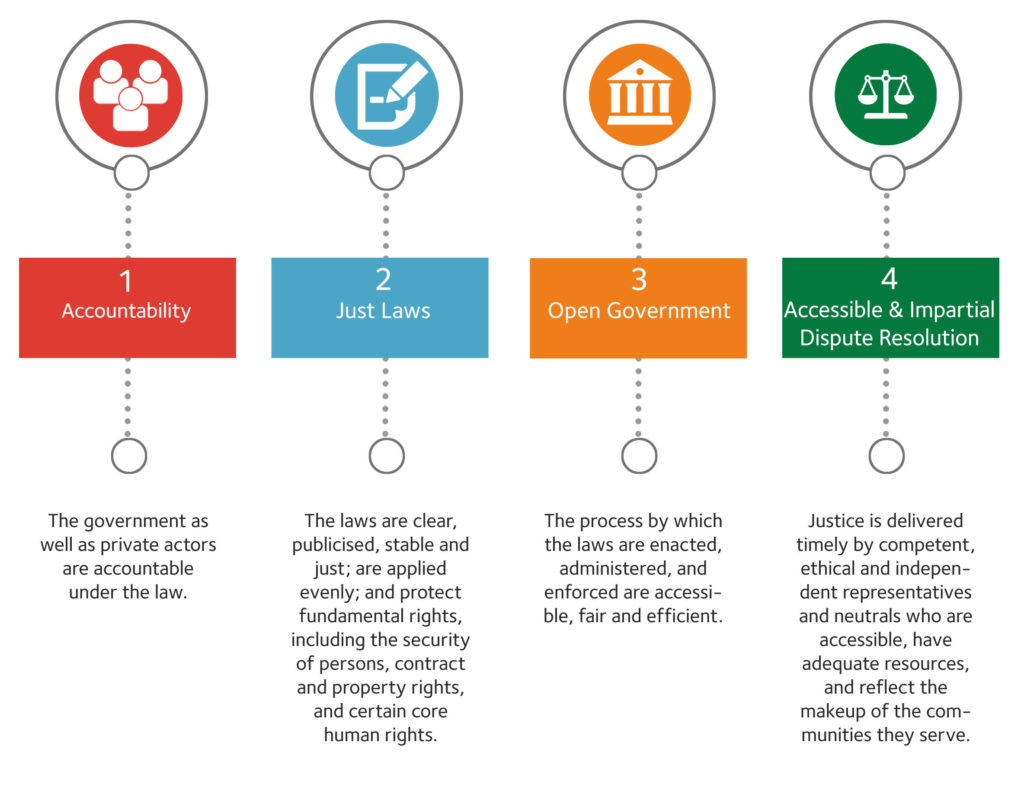Back to: CIVIC EDUCATION SS3
Welcome to class!
In today’s class, we will be talking about the rule of law. Enjoy the class!
Rule of Law

Rule of Law is the Principle that law (as administered by the ordinary courts) is supreme and that all citizens (including members of the government) are equally subject to it and equally entitled to its protection. It can also be defined as the predominance of law over everybody.
The concept of the rule of law was popularized by professor A.V. DICEY in his book titled ‘introduction to the law of the constitution’ published in 1885. It emphasizes that the government should rule according to the provisions of the constitution and that the government should be subject to the law. Also that no citizen should be punished except as prescribed by the law. The rule of law is also fundamental to the principle of separation of power which condemns the concentration of power in a single-arm of government to avoid abuse of power.
Evaluation
- Explain the concept of the rule of law.
- Who popularized the concept of rule of law?
Features or principle of the rule of law
- Equality before the law: this states that all men are equal before the law and that no one is above the law. The law should not be manipulated to favour anyone irrespective of wealth, post, class or status. All citizens of a country should enjoy equal access to the law of the land, equal right to fair hearing etc.
- Impartiality: this means that the due process of law should be followed in dealing with offenders. No one should be made to suffer any abuse of right, loss of personal liberty or punished in any way unless found guilty by the law court.
- Guarantee of fundamental human rights: all citizens of a country should enjoy their fundamental human right without any form of abuse. Such rights include right to life, right to freedom of movement, right to freedom of expression, right to fair hearing etc.
- There should be a separation of power between the three arms of government. That is a separation of power between the executive, judiciary and the legislature.
- The law should be supreme on both the government and the citizens. The government should rule following the law of the country.

Evaluation
- Explain the concept of the rule of law.
- Explain five features of the rule of law.
Factors limiting the application of the rule of law
The following are the factors that can limit the rule of law:
- State of emergency: the rule of law may be limited when a state of emergency is declared in a place. This can lead to abuse of human rights such as restriction of movement.
- The type of government in operation: the type of government such as military government can lead to autocracy and dictatorship which will limit the application of the rule of law.
- Partial judiciary: when there is a partial judiciary or lack of independence of the judiciary, the rights of individuals may not be guaranteed and this can also lead to the limitation of the rule of law.
- Special or administrative tribunals: such tribunals adopt a special system of trial different from that of the ordinary courts and they do not allow appeals against their judgment.
- Diplomatic immunity: ambassadors cannot be sued and prosecuted in the countries where they are serving rather they can be repatriated. Also, some people in government such as the president or governors enjoy immunity.
- Parliamentary immunity: members of the parliament cannot be sued or prosecuted based on the statements they make on the floor of the house.
- Security of state: the rule of law can be limited when security personnel such as the police carries out their duty to maintain security, and law and order. In such cases, some peoples’ right may be violated.
- Insanity: the rule of law does not apply to people suffering from a mental disorder and they are therefore not treated equally under the law.
Factors that can aid the successful application of the rule of law
- Offenders should be tried publicly without any form of secrecy.
- Existence of a free press.
- Existence of a democratic system of government.
- Independent and impartial judiciary.
- Granting of citizens the right to appeal.
- Separation of powers between the arms of government.
- The constitution should be supreme.
- Justice should not be delayed.
Evaluation
- Explain at least five factors that can limit the application of the rule of law
- How can a successful application of the rule of law be achieved?
Importance of the rule of law
- It guarantees equality before the law.
- It protects individuals’ right.
- It made the law supreme.
- Both the ruler and those they are ruling are equal before the law.
- It guarantees freedom of the judiciary.
- An accused person is not condemned until he or she is proven guilty by the court of law.
- It encourages separation of power.
- It also guarantees checks and balances.
General evaluation
- Give five factors affecting the successful application of the rule of law.
- State the importance of the rule of law.
- What are those factors that can aid the successful application of the rule of law?
- What is a constitution?
- Mention the arms of government.
Reading assignment
Read on the limitations of Rule of Law in Fundamentals of Civic Education for Senior Secondary School by Sola Akinyemi.
Theory
- Write five advantages of the rule of law.
- Give four reasons why people reject military rule in Africa.
In our next class, we will be talking about Constitutional Democracy. We hope you enjoyed the class.
Should you have any further question, feel free to ask in the comment section below and trust us to respond as soon as possible.

Punishment for breaking the law and equality of all citizens
process and problems of rule of law
define ombudsman
Thanks the answer was fantastic and is understandable